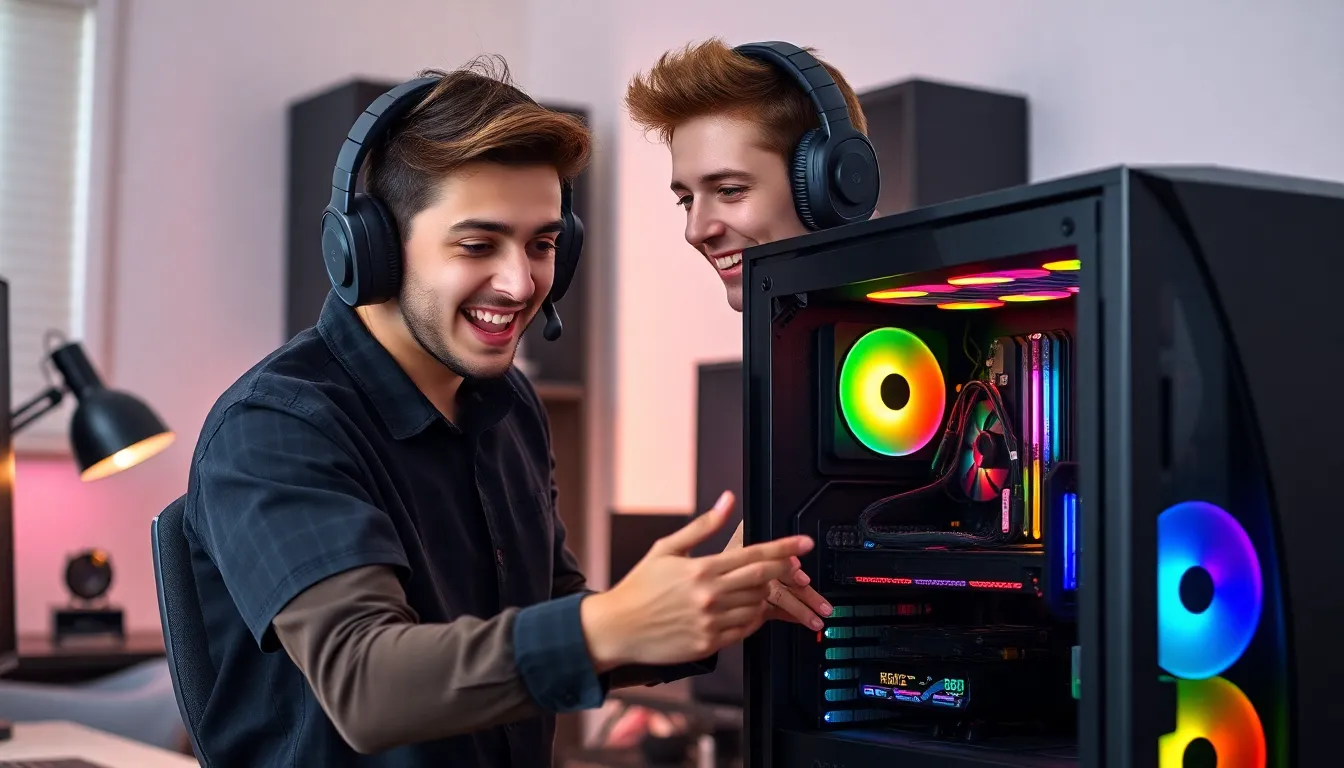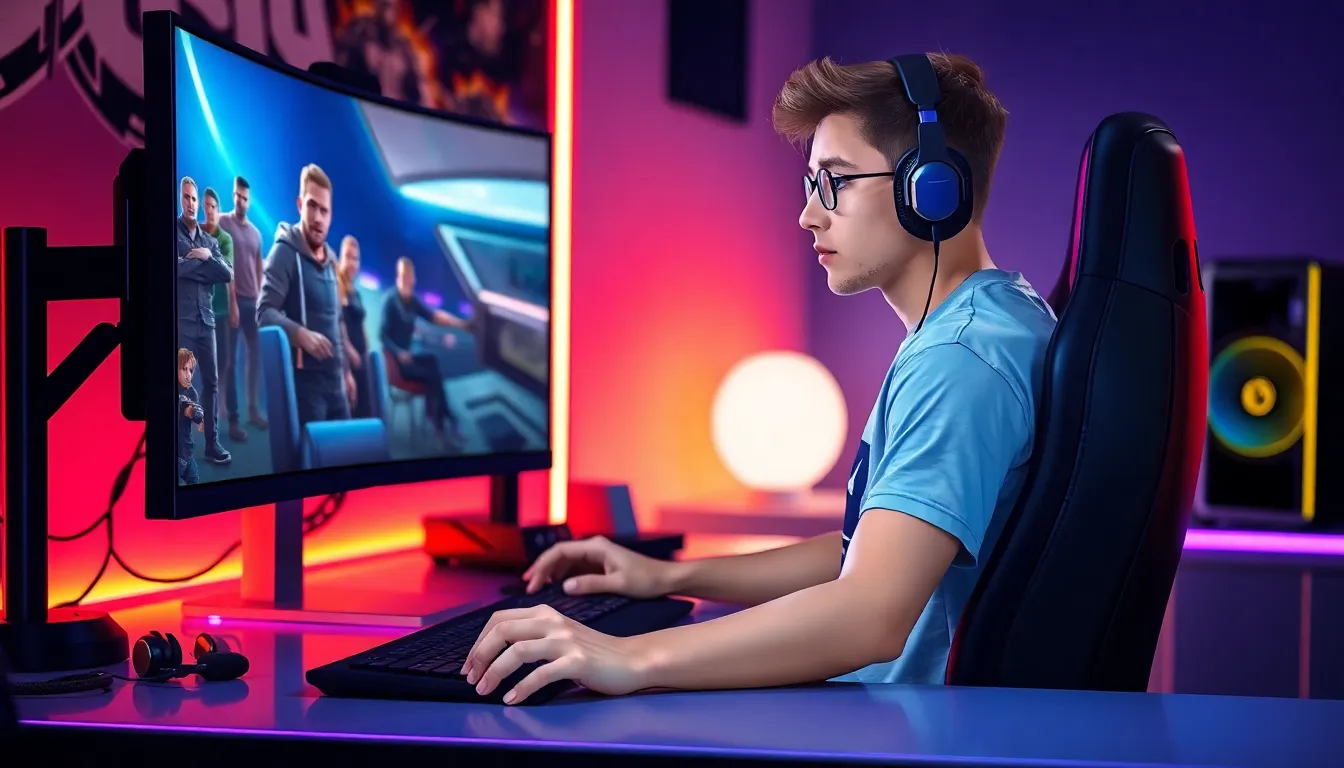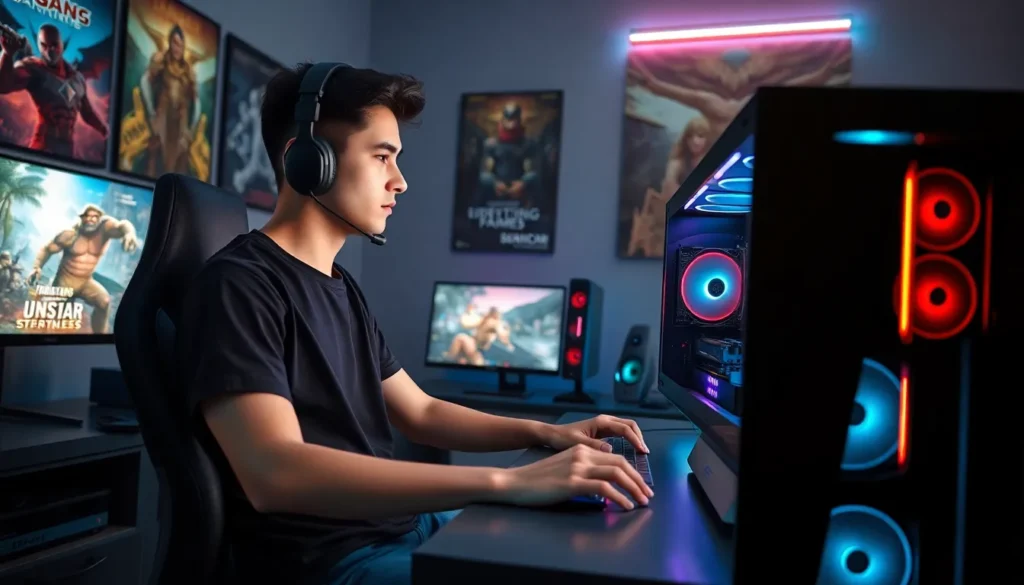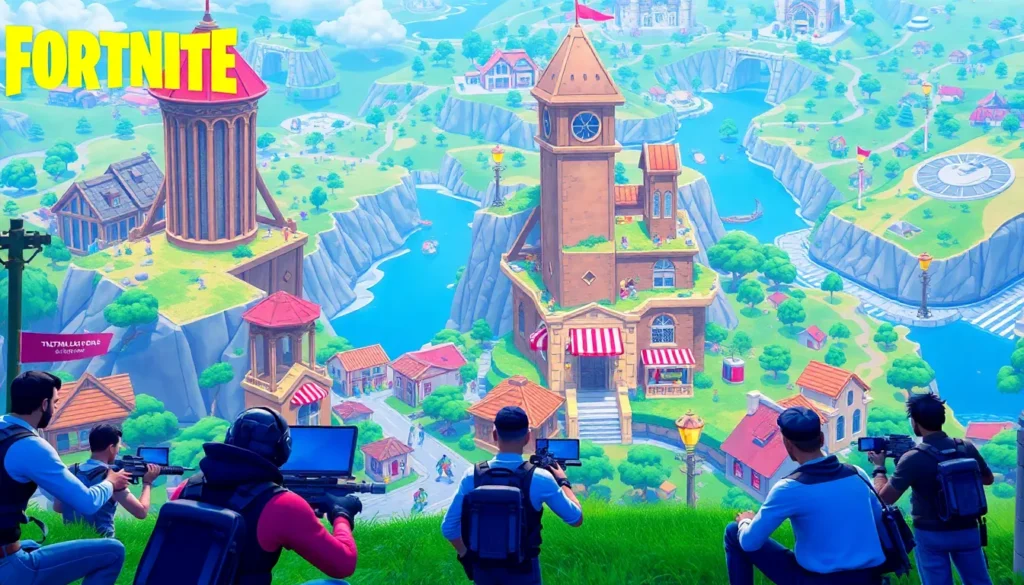In the world of gaming, having the right gear can mean the difference between victory and a spectacular faceplant. But let’s face it: building that ultimate gaming PC can feel like trying to win a boss battle with a rusty spoon. Enter gaming PC finance—a hero in disguise, swooping in to save wallets and dreams alike.
Table of Contents
ToggleUnderstanding Gaming PC Finance
Gaming PC finance plays a crucial role in making high-performance gaming accessible. Gamers can invest in quality equipment without facing immediate high costs.
Importance of Budgeting for Gaming PCs
Budgeting for gaming PCs ensures gamers allocate funds wisely. Prioritizing essential components, like graphics cards and CPUs, leads to better performance. Setting a realistic budget helps avoid overspending. A clear financial plan allows for effective saving strategies. Tracking expenses and adjusting as needed maximizes resources. Budgeting also encourages exploring financing options for upgrades.
Factors Affecting Gaming PC Costs
Gaming PC costs depend on various factors. Component quality significantly impacts price; higher-end parts typically come with greater expenses. Brand reputation also influences pricing; established brands often charge more due to perceived reliability. Additionally, market demand causes fluctuations in prices; during product launches or holidays, costs can rise. Customization options introduce further variations; unique builds may increase overall costs. Lastly, regional differences in pricing can affect affordability.
Financing Options for Gaming PCs

Exploring financing options for gaming PCs enables gamers to access high-performance machines without upfront financial strain. Understanding the various pathways can help in making informed decisions.
Personal Loans
Personal loans offer one way to finance a gaming PC. Many financial institutions provide unsecured personal loans, which don’t require collateral. Borrowing amounts typically range from $1,000 to $50,000, depending on creditworthiness. Monthly payments become predictable, aiding budget management. Interest rates can vary, so comparing multiple lenders proves beneficial. Annual percentage rates (APRs) often fall between 5% and 36%, influenced by borrower credit scores. Personal loans enable flexibility, allowing purchases of either complete systems or specific components. Gamers can enhance their setups without immediate financial pressure.
Credit Cards
Credit cards present another financing method for gaming PCs. Many gamers prefer using cards due to the convenience and potential rewards offerings. Credit limits generally range from $500 to several thousand dollars. Interest rates hover around 15% to 25%, depending on the card and user’s credit history. Opting for cards with zero-interest promotional periods can significantly reduce overall costs. Monthly payments retain flexibility, making it easier to allocate funds toward essential components. Additionally, building credit history becomes advantageous when utilizing these cards responsibly. Credit cards allow gamers to get the equipment they want while managing payments over time.
Building vs. Buying a Gaming PC
Choosing between building and buying a gaming PC influences both performance and budget. Understanding these differences helps gamers make informed decisions.
Cost Comparison
Building a gaming PC often appears cheaper, as purchasing individual components can reduce overall expenses. Graphics cards and CPUs typically represent the largest portion of the budget; therefore, selecting mid-range options balances performance and cost. Buying a pre-built system typically incurs additional labor costs but offers convenience, often including warranties and support. A pre-built gaming PC can range from $800 to $3,000, depending on specifications. Individual components, in contrast, may allow high-quality setups at similar price points while providing customization options. Gamers should analyze their preferences prior to committing to a choice.
Long-Term Financial Considerations
Long-term finances also play a significant role in the decision-making process. Building a gaming PC can lead to savings over time, as gamers upgrade components instead of replacing entire systems. This approach enables them to stay competitive while maintaining cost efficiency. On the other hand, pre-built systems may require less immediate investment but can incur higher depreciation rates, affecting resale value. Understanding performance longevity and component lifespan significantly impacts overall costs. Gamers should consider long-term maintenance expenses as they navigate building or buying choices.
Tips for Managing Gaming PC Expenses
Managing expenses while upgrading or building a gaming PC requires clear strategies. Gamers can ensure they invest wisely in components that enhance performance.
Setting a Realistic Budget
Creating a realistic budget involves assessing overall financial capabilities and needs. Gamers should examine essential components, such as graphics cards and CPUs, before identifying specific requirements. Prioritizing necessary upgrades over luxury enhancements creates an effective financial plan. Gamers often benefit from researching prices across various retailers and platforms to find the best deals. Establishing a fixed monthly expenditure for the gaming PC prevents overspending and maintains financial stability. Additionally, adjusting budget goals based on individual gaming preferences leads to a more tailored purchasing experience.
Saving for Upgrades
Saving for future upgrades requires a consistent savings strategy. Gamers can set aside a small percentage of their income each month for this purpose. Focusing on specific components that will provide the most significant performance improvements ensures effective use of saved funds. Tracking ongoing sales, discounts, or bundle deals can also help maximize savings. Gamers often find it beneficial to identify non-essential expenses they can reduce or eliminate, redirecting those funds toward their gaming budget. Creating a dedicated savings account specifically for gaming purchases streamlines the process and makes it easier to allocate money effectively.
Navigating the world of gaming PC finance opens doors for gamers seeking high-performance setups without the immediate financial burden. By understanding various financing options and budgeting strategies, they can make informed decisions that enhance their gaming experience. Prioritizing essential components and planning for future upgrades ensures they get the most value from their investments.
With the right approach, gamers can enjoy the thrill of cutting-edge technology while maintaining financial stability. Embracing these strategies not only makes gaming more accessible but also fosters a community of informed gamers ready to take their skills to the next level.








